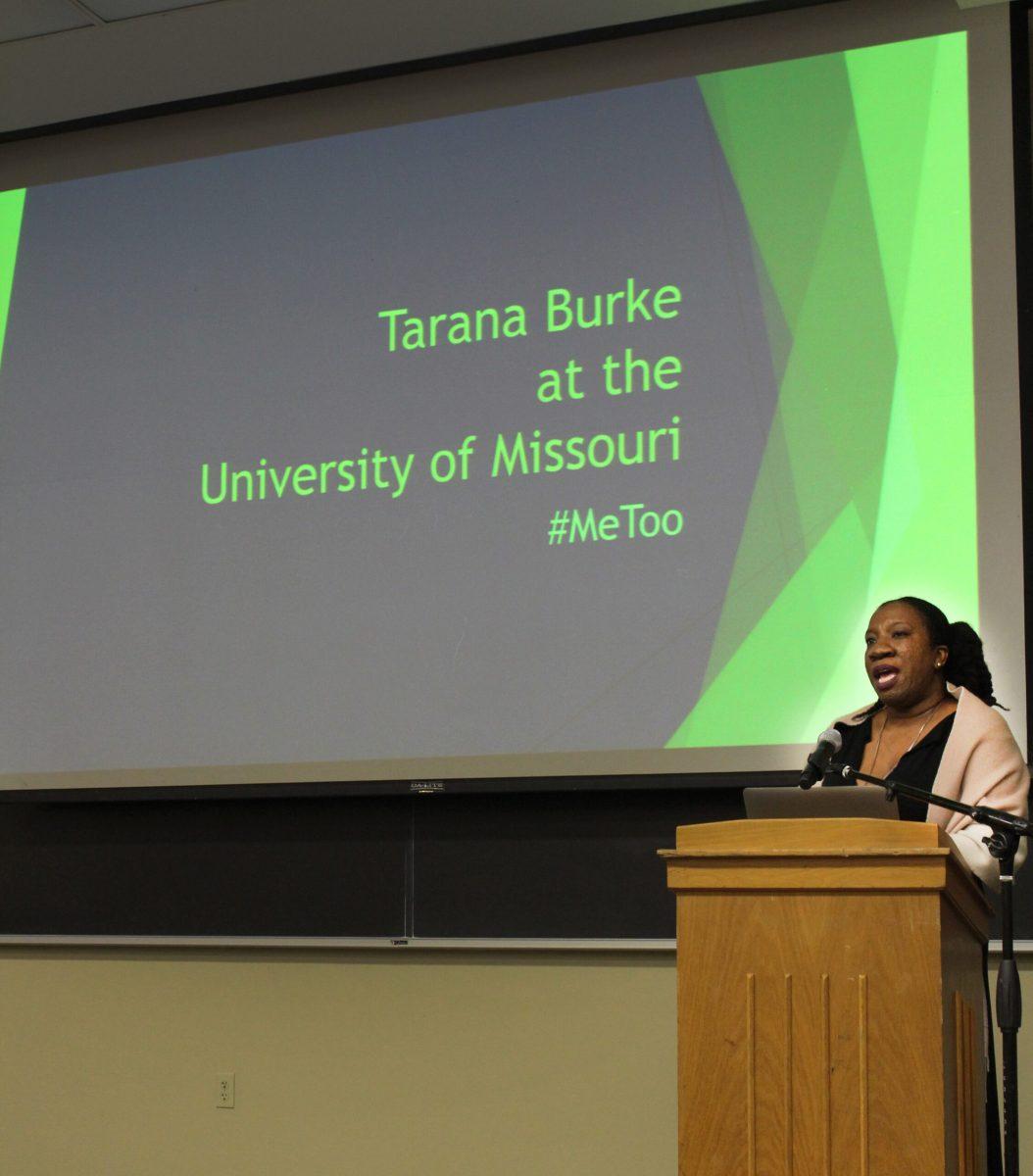
Tarana Burke, founder of the “me too.” movement, spoke on Feb. 20 to an audience in Tate Hall as MU’s Black History Month keynote speaker. She discussed the development of the movement and how to incite change in communities.
Burke started advocating for change when she was a 14-year-old living in the Bronx, a borough of New York City. She realized that she wanted to be an organizer for social change when the Daily News wrote a story about her and other protestors advocating for justice for the Central Park Five, the five teenage boys were wrongfully convicted of the assault, sodomy and rape of Trisha Meili.
Telling multiple stories of girls coming to her with assault and harassment cases when she worked at a youth camp as a counselor in her twenties, Burke explained that she knew she had to do something to help these girls.
“I thought about starting all-girls programs to help differentiate self-esteem from self-worth,” Burke said. “I didn’t want to release them into a world that said the opposite; I wanted to build a foundation for them.”
After years of working in Selma, Alabama, to build a space for girls who needed empathy and healing after abuse, she decided to call the program “me too.” because she wanted to give girls language to say that what was happening to them was wrong.
“I wanted to cultivate spaces for joy as a way of healing,” Burke said. “You cannot thrive in the spaces where you were harmed. That’s why community healing is important. You deserve healing and you deserve safety.”
As the #MeToo movement started to gain global attention following the Harvey Weinstein scandal, Burke admitted she felt like her movement was in jeopardy and that people were forgetting where it had originated.
“I was afraid that I would be erased as a black woman, as we have seen in many other cases,” Burke said. “Later, I read a long story from one woman and I felt convicted; I had spent the entire day trying to protect my work, when this was my work.”
Burke has a clear idea of what her movement reinforces.
“I expect that you believe that survivors should be at the forefront of the movement; that you understand that there is a spectrum of sexual violence and this movement addresses the entire spectrum,” Burke said in an email. “That the most marginalized voices have to be amplified in whatever work is done in the name of ‘me too.’”
She explained that she speaks to colleges now because of the lack of change surrounding sexual harassment and assault despite the creation of programs like Title IX.
“Be committed to changing a culture in the school — it’s not just about the posters on the wall,” Burke said. “You can’t just check off a box on Title IX. Will we stand up against gender-based violence on this campus? Are you prepared to do that?”
Honest and humble, Burke left the crowd at Tate Hall with a desire to make change and a reminder that we still have a long way to go.
“This was just one idea,” Burke said. “We need more ideas. I’m asking you to join me: Let’s heal together. Let’s heal our communities together.”
_Edited by Brooke Collier | [email protected]_